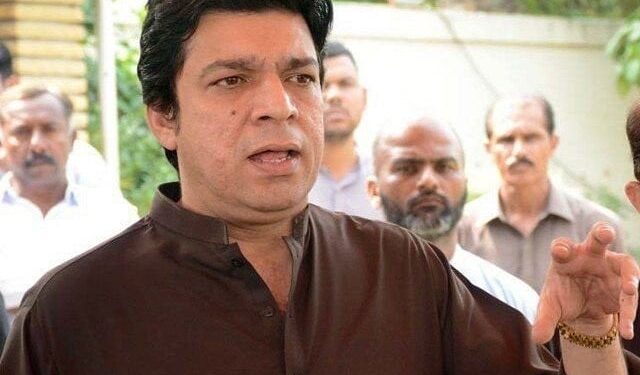Islamabad: Pakistan Tehreek-e-Insaf’s (PTI) decision to abstain from the crucial National Security Committee (NSC) meeting has been criticized as a major political miscalculation by Senator Faisal Vawda.
During an interview, Faisal Vawda expressed his disapproval of PTI’s decision, calling it “a strange choice” that did not align with the gravity of the issue being discussed. The NSC meeting, held to address national security concerns, particularly the issue of terrorism, required the collective participation of all major political stakeholders, according to Vawda. He insisted that PTI’s absence from such a critical discussion was inappropriate and detrimental to Pakistan’s national interests.
Significance of the National Security Committee Meeting
The NSC meeting was convened to discuss pressing security concerns, including the resurgence of terrorist activities and the broader challenges facing Pakistan’s internal and external security framework. Given the country’s complex security landscape, the participation of all major political forces was essential for crafting a unified response to the threats posed by extremist groups and hostile elements.
The meeting aimed to foster national consensus on key security policies and strategies. Top government officials, military leadership, and intelligence agencies briefed attendees on the latest developments regarding security threats, border management, and counterterrorism measures. The absence of PTI, one of the country’s leading political parties, raised concerns about the possibility of a fragmented national response to these challenges.
Faisal Vawda’s Criticism of PTI’s Decision
Faisal Vawda, a former PTI member turned independent senator, did not hold back in criticizing his former party’s leadership. He argued that terrorism is not a political issue but a national crisis requiring bipartisan cooperation.
“I think PTI should have attended the meeting. It was a big mistake not to. This meeting was not about political point-scoring; it was about Pakistan and its security. Regardless of political differences, PTI’s leadership should have recognized the importance of this platform,” Vawda said in his interview.
He further suggested that the party’s internal divisions and ongoing confusion had influenced its decision-making process, preventing PTI from engaging in constructive dialogue on national security matters.
PTI’s Justification for Non-Participation
PTI has yet to provide a comprehensive explanation for its absence from the NSC meeting. However, sources within the party suggest that their reluctance to participate may be linked to ongoing political tensions with the ruling coalition. Since its removal from power, PTI has maintained a confrontational stance toward the government, often refusing to engage in forums convened by the ruling leadership.
Some PTI leaders have indicated that they were not formally invited to the meeting, while others have suggested that their absence was a form of political protest against what they perceive as an unfair and repressive political environment.
The Broader Political Implications
Vawda’s remarks reflect growing concerns that PTI’s political strategy is increasingly isolating the party from national decision-making processes. While PTI remains one of the most popular political forces in Pakistan, its continued reluctance to engage in parliamentary sessions, security briefings, and policy discussions has raised questions about its long-term political strategy.
By skipping the NSC meeting, PTI may have missed an opportunity to influence national security policy and contribute its perspective on the rising threats of terrorism. It also raises the question of whether PTI’s absence weakened Pakistan’s collective security stance at a time when unity is paramount.
Security Challenges Facing Pakistan
Pakistan has faced renewed security threats in recent months, particularly in regions bordering Afghanistan. The rise in terrorist attacks, particularly from groups like Tehreek-e-Taliban Pakistan (TTP), has led to increased calls for a coordinated national response.
The NSC meeting was expected to focus on strategies to counteract these threats, including intelligence-sharing, border security reinforcements, and diplomatic engagements with neighboring countries. The government has also been pushing for stronger action against terrorist safe havens and a reevaluation of Pakistan’s counterterrorism policies.
Given the gravity of the situation, national unity on security matters is crucial. Analysts argue that political differences should take a back seat when it comes to national security, as a divided stance could be exploited by adversaries.
Calls for a Unified Approach
Many political analysts and security experts agree with Faisal Vawda’s assessment that PTI’s absence was a strategic blunder. They argue that regardless of political rivalries, all major parties must set aside their differences when it comes to national security matters. A united front would send a strong message to terrorist groups that Pakistan’s leadership remains unwavering in its commitment to combating threats.
Vawda emphasized the need for better communication and coordination among political forces, calling on PTI to rethink its strategy and engage with national security institutions.
“Security should never be politicized. We need to work together for the safety and stability of Pakistan. PTI should prioritize the nation’s interests over political differences,” he stated.
Conclusion
The criticism from Faisal Vawda highlights the growing debate over PTI’s political approach and its reluctance to participate in state-led discussions. While the party continues to navigate a challenging political landscape, its non-participation in the National Security Committee meeting has raised serious concerns about its commitment to addressing national security threats.
With Pakistan facing a complex security environment, political unity and cooperation remain essential. Whether PTI will reconsider its stance on future security meetings remains to be seen, but as Faisal Vawda pointed out, national security must remain a shared responsibility above partisan politics.

























